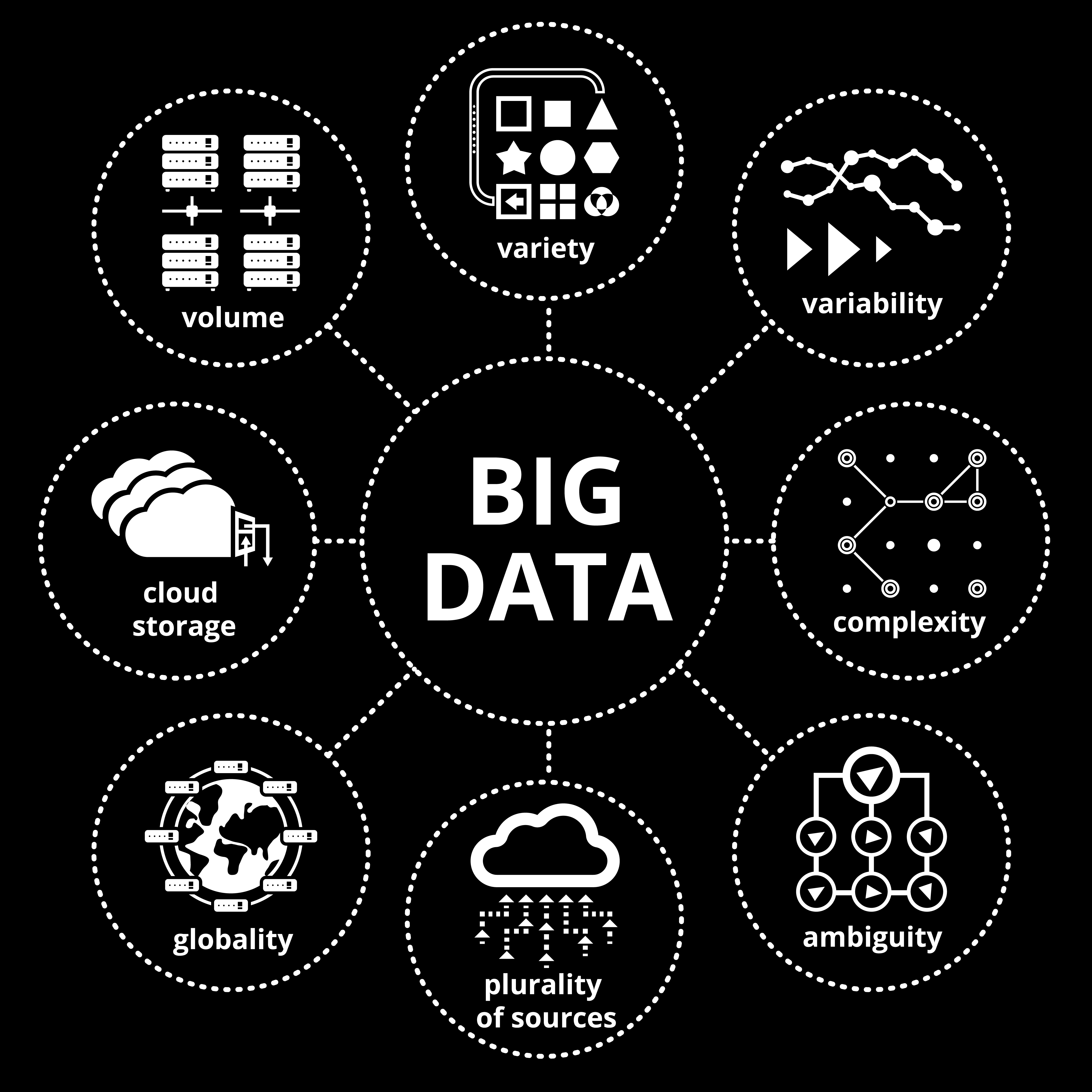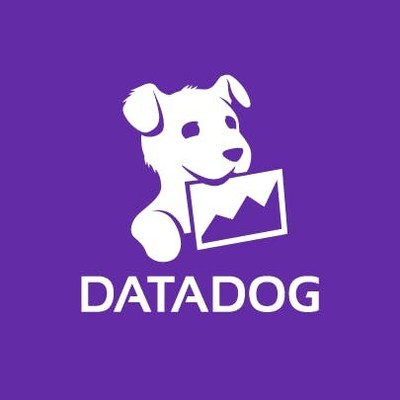
Image Source: Use of Big Data Analytics in Investing | Analytics Insight
Imagine a world where every customer interaction, market trend, and operational inefficiency is not just recorded, but also analyzed and turned into an actionable insight.
This is the world of Big Data, where companies like Snowflake, Datadog, or Amazon have revolutionized the way companies collect, analyze, and use data to drive business success.
By harnessing the power of vast data sets, these companies are helping businesses optimize everything from supply chain logistics to personalized customer recommendations, significantly enhancing their market dominance and profitability.
Today, we will be going over how to invest in big data, specifically touching on what big data is, the biggest trends driving the industry forward, and finally, the top big data stocks for investors to play this exciting trend.
What is Big Data?

Image Source: What is Big Data, and How Can You Benefit from It? | GIGABYTE Global
Big data refers to extremely large data sets that are so complex and voluminous that traditional data processing software tools cannot efficiently process them.
These data sets are characterized by the five Vs:
Volume
The sheer amount of data generated every second is staggering. From social media posts to transaction records, sensor data in smart devices, and beyond, the volume of data being produced and stored is continuously growing at an exponential rate.
Velocity
This relates to the speed at which new data is generated and the pace at which it moves. We live in a world where data is produced in real-time and needs to be processed just as quickly. This includes everything from live-streaming data and real-time analytics to time-sensitive data in fields like finance and emergency services.
Variety
Big data comes in all types of formats – from structured, numeric data in traditional databases to unstructured text documents, emails, videos, audios, and financial transactions.
Veracity
This refers to the reliability and accuracy of data. With the vast amount of data available, ensuring that the data is accurate and trustworthy is crucial for effective decision-making.
Value
The ultimate goal of processing big data is to extract meaningful value from it. It’s about turning these massive data sets into insights that can lead to better decisions and strategic business moves.
Big data technologies, such as AI and machine learning algorithms, are used to handle, process, and analyze these data sets to uncover hidden patterns, unknown correlations, market trends, customer preferences, and other useful business information. The insights gained from big data analysis can lead to more effective marketing, new revenue opportunities, better customer service, improved operational efficiency, competitive advantages over rival organizations, and other business benefits.
In essence, big data is not just about the data itself, but about the insights, decisions, and innovations that come from analyzing it. As we continue to generate and capture more data, the role of big data in business, science, and society will only become more important.
Big Data Market Trends

Image Source: Big-Data Ecosystem | Cerebra ::
As we use ever-increasing volumes of data, the way we collect, process, and analyze this data is continually being redefined. This evolution is not just driven by the growing magnitude of data, but also by technological advancements, changing regulatory landscapes, and shifting business needs.
From the integration of advanced technologies like AI and ML to the adoption of new operational models such as DaaS, the industry is undergoing a transformation. These trends are not just technical evolutions; they represent a substantial shift in how business data is viewed and used in decision-making processes across industries.
Below, we’ve outlined the top industry trends in big data. Everything from new data creation methods to data and analytics processes, these trends are giving a roadmap on where this multi-billion-dollar industry is heading next.
Increased Adoption of Cloud-Based Big Data Solutions
Big data is increasingly moving towards cloud platforms. These solutions offer scalability, efficiency, and cost-effectiveness for handling large data volumes, which is especially important with the rise of remote work and the need for accessible, real-time analytics.
Advancements in Artificial Intelligence and Machine Learning
Artificial Intelligence and Machine Learning are at the forefront of the big data evolution. They enable sophisticated data analysis, predictive modeling, and complex process automation, leading to more accurate insights and improved decision-making.
Focus on Data Privacy and Security
As data volume grows, so do concerns around privacy and security. Regulations like GDPR and CCPA have ushered in a wave of more stringent data protection measures, driving innovation in secure market data handling and ethical information use.
Growth of IoT and Edge Computing
The rise of Internet of Things (IoT) devices is creating vast amounts of data. This has catalyzed the growth of edge computing, where data processing occurs closer to its source, thus reducing latency and bandwidth usage while simultaneously lowering costs and improving security.
Data-as-a-Service (DaaS) Model Gaining Popularity
Data-as-a-Service (DaaS) is becoming more popular, offering on-demand data to users beyond geographical or organizational boundaries. This model allows access to high-quality, relevant data without the need for extensive in-house data management.
Predictive Analytics in Demand
Businesses are increasingly adopting predictive analytics for forecasting trends, customer behaviors, and market dynamics. This involves analyzing historical data to make informed predictions, aiding in strategic planning and proactive decision-making.
Increased Use of Data Visualization Tools
With the growing complexity of big data, there’s a rising demand for data visualization tools. These tools make data more accessible and understandable, even for those without deep technical expertise.
Focus on Data Quality Management
There’s a heightened emphasis on managing the quality of data. Investments are being made in data governance and quality management tools to ensure data accuracy and reliability, which are vital for deriving meaningful insights.
Best Big Data Stocks
Big data has become a fundamental element across industries, driving innovation, efficiency, and decision-making.
In this section will dive into the best big data stocks in the stock market today, highlighting companies that are not only leaders in the field but also trailblazers in leveraging new big data tech for business transformation.
These companies range from smaller firms with still growing annual recurring revenue to tech giants with already developed big data operations. Each of these firms has demonstrated a unique ability to harness the power of vast data sets, turning them into valuable insights, products, and services.
As we examine these companies, we’ll consider how they are leveraging big data, their market position, and their potential for future growth.
Snowflake Inc. (SNOW)

Image Source: SNOW Stock Price and Chart — NYSE:SNOW | TradingView
Snowflake’s cloud-based platform offers a revolutionary approach to data warehousing, data lakes, data engineering, and data sharing. The platform allows businesses to seamlessly store, consolidate, and analyze large volumes of data across various cloud providers, offering unparalleled flexibility and efficiency. Snowflake’s ability to handle big data with ease, coupled with its unique pay-for-what-you-use pricing model, positions it at the forefront of data warehousing solutions in the cloud era.
Company Stats:
- Market Cap: $65 billion
- TTM Revenue: $2.62 billion
- Profit Margin: $-33%
- Total Debt: $286 million
Amazon (AMZN)

Image Source: eGift Card | Amazon Logo: Gift Cards
Amazon Web Services (AWS) plays a pivotal role in big data through its comprehensive suite of cloud computing services. AWS offers powerful tools like Amazon S3 for data storage, Amazon Redshift for data warehousing, and Amazon SageMaker for machine learning, enabling businesses to manage and analyze vast amounts of data effectively. AWS’s scalability, reliability, and innovative cloud capabilities make it essential for companies looking to leverage big data for operational optimization and strategic insights.
Company Stats:
- Market Cap: $1.5 trillion
- TTM Revenue: $554 billion
- Profit Margin: 3.62%
- Total Debt: $166 billion
Datadog (DDOG)

Image Source: Datadog Introduces Datadog Apps to Extend Platform to Third-Party Applications | Businesswire
Datadog provides a monitoring service for cloud-scale applications, offering real-time analytics and observability into an organization’s technology stack. Its platform aggregates data from servers, databases, and other services, presenting it in a user-friendly dashboard that allows for quick identification of performance bottlenecks, security threats, and operational issues. Datadog’s focus on cloud infrastructure and application performance makes it indispensable for businesses that rely on big data for day-to-day operations and strategic decision-making.
Company Stats:
- Market Cap: $40 billion
- TTM Revenue: $2 billion
- Profit Margin: -1.72%
- Total Debt: $887 million
International Business Machines (IBM)

Image Source: IBM – International Business Machines Corporation | Finpedia
IBM utilizes big data through its extensive range of products and services, including the IBM Watson platform, which offers AI and machine learning capabilities. IBM Cloud Pak for Data helps businesses automate the AI lifecycle, while IBM’s Global Business Services provides expert consulting in big data analytics. IBM’s legacy in technology and ongoing innovation in data analytics positions it as a leader in helping businesses transform data into actionable insights across various sectors.
Company Stats:
- Market Cap: $148 billion
- TTM Revenue: $61 billion
- Profit Margin: 11.32%
- Total Debt: $58 billion
Elastic N.V. (ESTC)

Image Source: Elastic Announces Intent to Acquire Opster | Business Wire
Elastic N.V.’s Elastic Stack, including Elasticsearch and Kibana, allows businesses to search, visualize, and analyze data in real-time. This capability is vital for a wide range of applications, from IT operations to customer service, security, and business analytics. Elastic’s focus on speed, scalability, and ease of use with big data makes it a go-to solution for companies requiring real-time insights from their data.
Company Stats:
- Market Cap: $11 billion
- TTM Revenue: $1 billion
- Profit Margin: -16.62%
- Total Debt: $592 million
Accenture (ACN)

Image Source: Recruitment and Hiring Privacy Statement | Accenture
Accenture leverages big data through its comprehensive range of services and solutions, focusing on digital transformation and innovation. They help clients across various industries to harness the power of big data, employing analytics and AI to drive business improvements, optimize operations, and create new business models. Accenture’s approach combines their deep industry knowledge with cutting-edge data analytics capabilities, making them a leader in transforming big data into strategic value.
Company Stats:
- Market Cap: $215 billion
- TTM Revenue: $64 billion
- Profit Margin: 10.72%
- Total Debt: $3 billion
Conclusion
As the industry of big data continues to develop and mature, it’s clear that there are multiple ways to invest in the industry.
The companies we’ve explored — Snowflake, Amazon, Datadog, IBM, Elastic, and Accenture — each bring unique strengths and innovations to the table, highlighting the diverse approaches and strategies in harnessing this tech.
What stands out is not just the technological advancements these companies bring, but also their ability to translate massive volumes of data into actionable insights, thereby driving business growth and innovation.
For investors, understanding the nuances and trends driving this industry is key to identifying companies that are not just surviving but thriving in the big data ecosystem.
In conclusion, the realm of big data is one of continual growth and transformation. The companies leading this charge are not only redefining their industries but are also offering solid ground for investment and innovation.
As we step into the future, the role of big data in shaping business strategies and driving growth will undoubtedly become more pronounced, making it a great part of an investment portfolio and indispensable part of the modern digital economy.
Disclosure/Disclaimer:
We are not brokers, investment, or financial advisers; you should not rely on the information herein as investment advice. If you are seeking personalized investment advice, please contact a qualified and registered broker, investment adviser, or financial adviser. You should not make any investment decisions based on our communications. Our stock profiles are intended to highlight certain companies for YOUR further investigation; they are NOT recommendations. The securities issued by the companies we profile should be considered high risk and, if you do invest, you may lose your entire investment. Please do your own research before investing, including reading the companies’ public filings, press releases, and risk disclosures. The company provided information in this profile, extracted from public filings, company websites, and other publicly available sources. We believe the sources and information are accurate and reliable but we cannot guarantee it. The commentary and opinions in this article are our own, so please do your own research.
Copyright © 2023 Edge Investments, All rights reserved.
